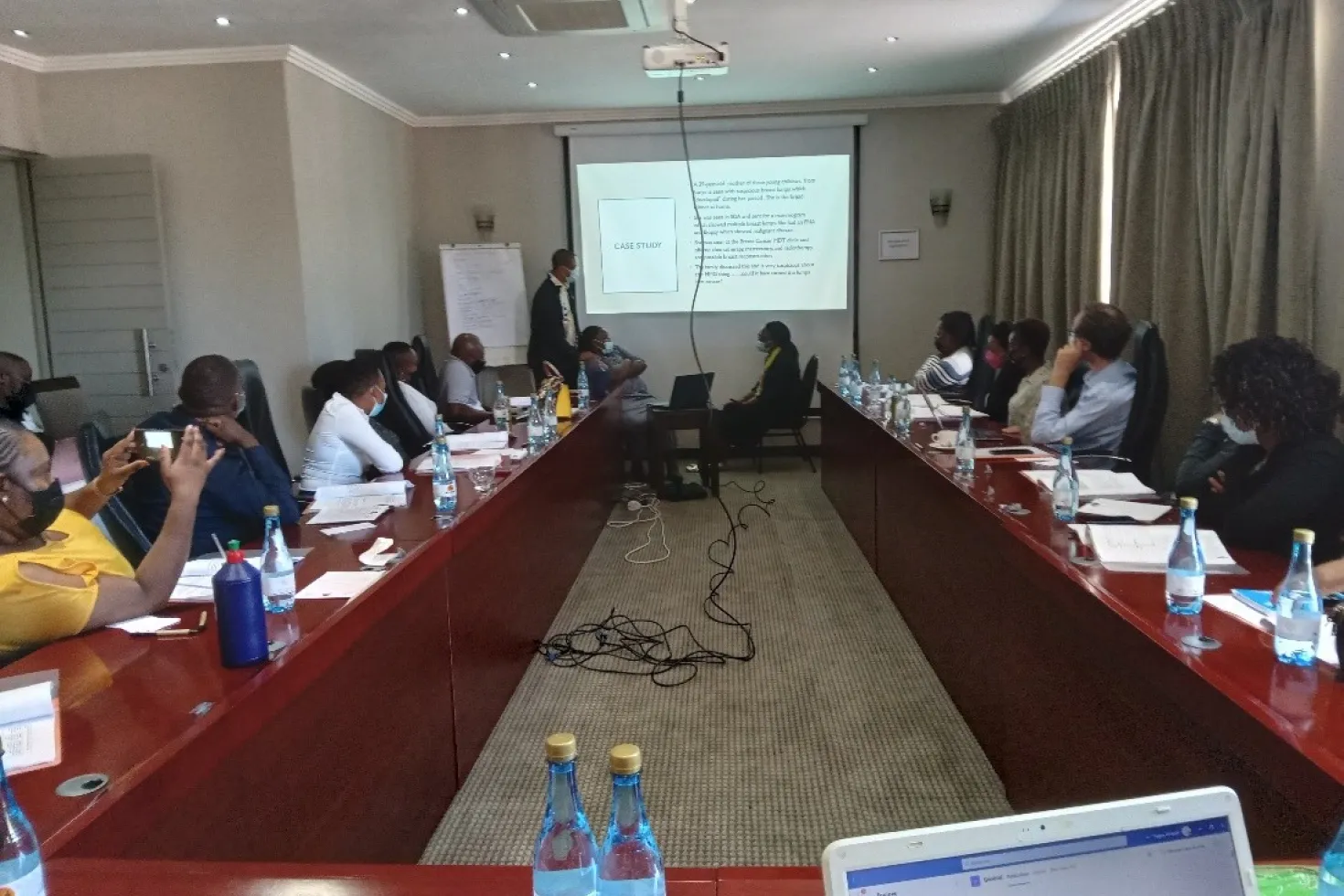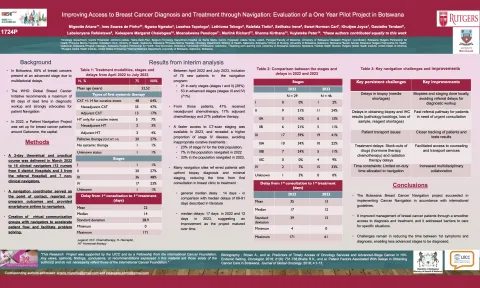Demonstration of a scalable breast health care pathway in Botswana

Botswana Rutgers Partnership for Health, Botswana
As part of the Breast Cancer programme, this project was awarded a grant for early detection of breast cancer in October 2021.
Project objectives
The objective of the project was to establish a coordinated patient navigation system in Botswana aimed at ensuring early diagnosis and treatment of breast cancer. This included enhancing patient navigation services, coordinating supportive care options, and developing tools to track patients' care pathways. Additionally, the project focused on identifying barriers to care and promoting active patient involvement in decision-making.
Project description
This project built upon a project titled, ‘Improving timely access to care for women with advanced stage breast cancer in Botswana’, funded in 2019 by the SPARC grant programme, focused on metastatic breast cancer.
The project successfully established a patient navigation programme with a total of 20 patient navigators (15 clinical patient navigators and five non-clinical navigators) trained. The program facilitated clear communication and referral pathways between hospitals and a multidisciplinary breast clinic. A monitoring and evaluation survey tool was developed to measure navigation activities, which proved effective in identifying barriers and challenges. As a result, 200 patients with suspected malignancies received screening, and 50 breast cancer patients benefited from navigation services, 38 of these are currently undergoing treatment.
The programme also accelerated the turnaround time for results, improving patient access to care. Following this project, the mean time from presentation to first breast clinic visit was approximately two months in this study compared to approximately 200 days in a previous study from 2019.
As a result, the programme's success led to increased clinic bookings and active communication between navigators and caregivers.
Key numbers
Impact
Building on the work initiated through the project, the team continued their efforts and, in 2023, published a paper in the Journal of Cancer Policy titled ‘‘Breast cancer patient experiences in the Botswana health system: Is it time for patient navigators?’. Closely linked to the project’s objectives, the study, based on focus group discussions with patients and caregivers, highlights key barriers to timely diagnosis and comprehensive management, and explores how patient navigator programmes could improve communication, address information gaps, and provide practical and emotional support within Botswana’s healthcare system.
The patient navigation project has continued without dedicated funding, providing support to approximately 100 additional patients using the experience gained during the project, although limited data collection, coordination, and expansion were possible. Since July 2025, new funding has enabled the team to expand and restart a coordinated patient navigation programme for two to three more years, allowing for more systematic data collection and stronger programme coordination moving forward.
Gallery
Last update
Friday 13 February 2026